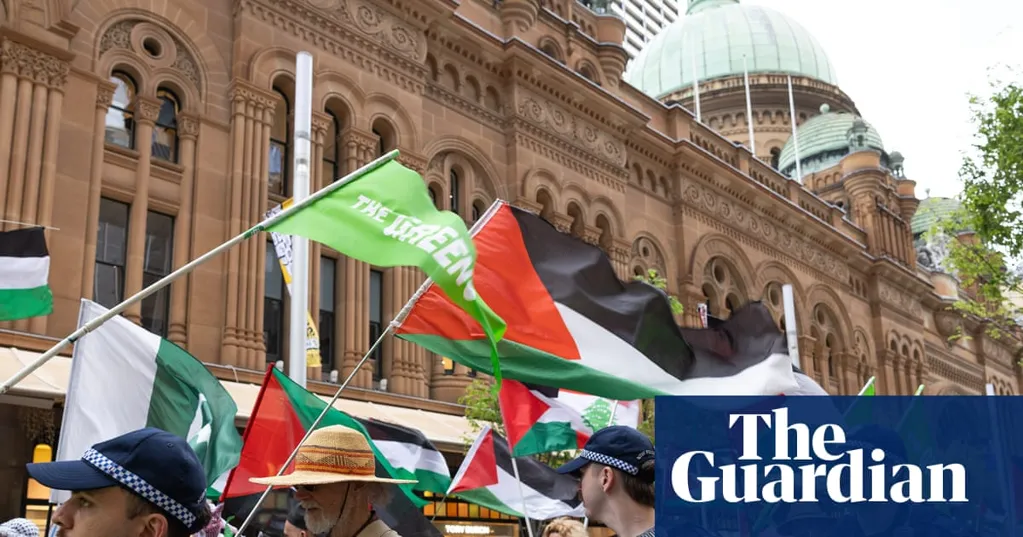The New South Wales supreme court has struck down a law that had given police expanded powers to prevent protests near places of worship.
Josh Lees, on behalf of the Palestine Action Group, had challenged the law on the basis that it was unconstitutional.
Justice Anna Mitchelmore ruled on Thursday that the police powers impermissibly burdened the freedom of political communication implied in Australia's constitution.
The challenge came after the NSW government passed in February a suite of reforms aimed at curbing antisemitism. This included a law which gave police the power to move on protesters who are "in or near" a place of worship.
It raised fears that the broad powers could see police shut down protests at major sites in Sydney, including Town Hall and Hyde Park which are near places of worship. The move-on powers did not stipulate that the protest needs be directed at the place of worship: it could be about anything.
During the hearing in June, lawyers for the Palestine Action Group had argued the "vagueness" of the legislation's wording created a "chilling effect" as neither protesters nor police officers could determine the reach of the powers.
The state of NSW argued that the laws had an "obvious and legitimate purpose" of protecting religious communities trying to access a place of worship from physical obstruction, physical or verbal harassment, intimidation or incitement to fear.
Appearing for the state of NSW, Michael Sexton SC, told the court the "in or near" wording was confined to those instances.
The court heard the catalyst for the places of worship bill was a protest outside the Great Synagogue where a member of the Israel Defense Forces was speaking.
"[It] was not a religious event," PAG's barrister, Felicity Graham, had told the court.
During a February debate over the bill, Labor MP Stephen Lawrence told parliament that the synagogue protest being the catalyst showed the "clear intention of the bill" was not what the government claimed.
Guardian Australia understands that the law caused friction during an internal Labor meeting after it was introduced. During that meeting Labor MP Anthony D'Adam had moved a motion to redraft the bill so that the obstruction was limited to instances where a protest was directed at a place of worship.
Both Lawrence and another Labor MP Cameron Murphy had warned that without this limitation the law could be found unconstitutional.
The premier, Chris Minns had said in March that the government believed the laws were "constitutionally sound". "I'm not going to second-guess the courts. It's up to them to make a decision," the premier told reporters.
"People should have the freedom to practise their religion free from intimidation or hate ... and that's the reason we moved the laws in the first place."
The proposed law expanded the Crimes Act to make it an offence to block access to the place of worship without reasonable excuse, or from "harassing, intimidating or threatening" people accessing places of worship. The offence would carry a maximum of two years in prison.
Police were then given associated move-on powers, which is the section PAG challenged.
The laws were part of a suite of reforms passed in February after a wave of antisemitic attacks over the summer, which included a caravan being found laden with explosives on the outskirts of Sydney.
Two weeks after the legislation was passed, the Australian federal police revealed their belief that the caravan and antisemitic attacks were a "con job" by organised crime to divert police resources and influence prosecutions.
The revelation triggered an upper house inquiry into what the premier, Chris Minns, and his senior cabinet ministers knew about the attacks before passing the legislation. The inquiry, which was supported by the Coalition, the Greens and members of the crossbench, is yet to hand down its findings.
